No longer purely domestic
In future, people will expect their homes to deliver much more because they will no longer serve a purely domestic purpose, the report claims. Instead, homes will become places that must fulfil home, work and social needs. More in-home entertaining will be a direct consequence of people spending more time in their abode.
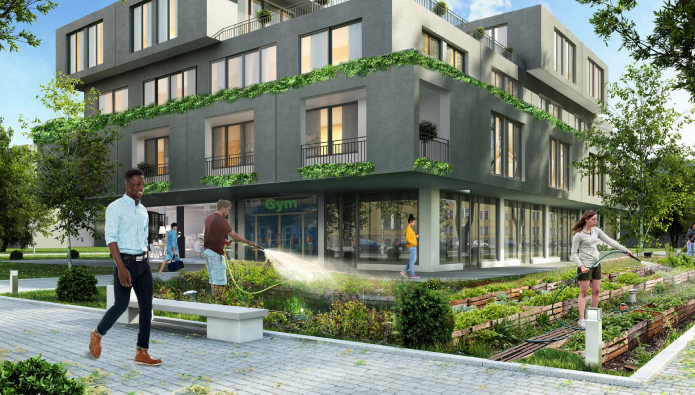
In the experts' view, this will elevate the importance of these aspects of the home and this will be felt in design.
“The home won’t just be a trading commodity you return to, play video games, have sex and go to sleep. People will be more interested in their living space,” Robert Adam, founder of Robert Adam Architecture Consultancy, insists.
A move away from city centre living
Location, location, location has long been one of the most important factors for people when deciding on a home, and in many cases this meant a home in the heart of a thriving city close to amenities, green space and numerous bars, restaurants, pubs and cafes, as well as good transport links.
However, one of the biggest themes during the pandemic has been an increase in the number of people looking to escape the city in favour of something more relaxed. Property agents from across the UK have reported a rise in the number of people moving from city centres in the wake of Covid-19, to locations that are further afield than people had traditionally considered.
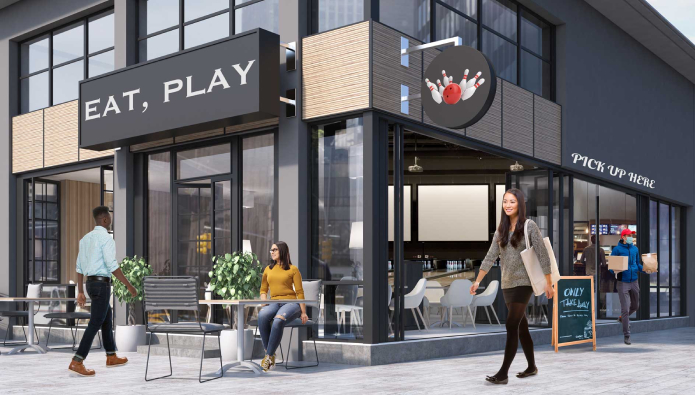
These locations, while not rural, provide a feeling of being ‘outside of the central metropolises’ while still being well-served by the kind of amenities and resources city-livers are used to.
There have been reports, too – including a recent one from Savills – of growing demand for homes in well-served villages, market towns and coastal areas within an hour and a half journey to the cities. With the rapid rise in home working offering more freedom and flexibility, people are looking for more living space and greener environments.
More amenities on the doorstep will be expected
The experts surveyed in the report said that, as more time is spent at home, for one purpose or another, the immediate locality will have to satisfy needs that were previously met elsewhere.
Wherever people live, they will expect more amenities, variety and infrastructure to be provided locally, the report found.
The experts polled said that people have embraced local services and retailers during the pandemic and have questioned their use of larger national providers in a way that they hadn’t done previously. In fact, the report claimed that confidence in national retailers was in some instances undermined by shortages, with people discovering instead that there was more choice on their doorstep than perhaps they had realised.
“As people have refocussed on getting provisions nearby, local businesses have seen a real boost… there’s been a nice rediscovery of traditional local shops,” Adam added.
A reinvention of suburbia
The experts believe that suburbia has been slow to adapt to people’s changing expectations and requirements, with a theme from the report being that the suburbs ‘feel tired and lacklustre’. The report also suggested that, in their current configurations, the suburbs are ill-equipped to accommodate the resurgence in demand for community, brought about by an increased amount of time spent at home.
Those surveyed said that suburbs will need to become destinations in their own right – places that people want to spend time in, rather than simply travel to or from.
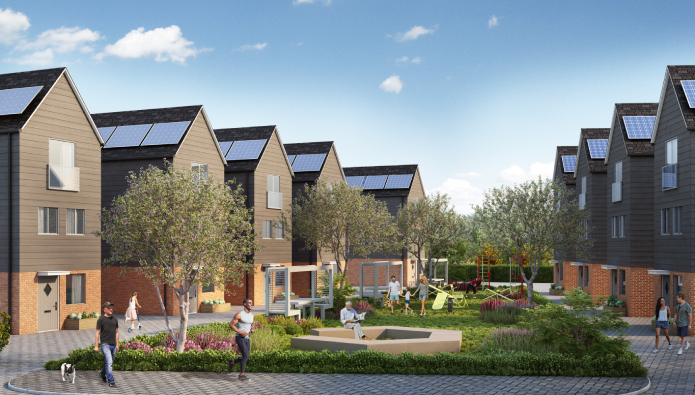
Ultimately, the experts said, it is about creating a sense of community where perhaps it had been lacking for a long time. For this, you need the businesses, shops, services and amenities that make community possible.
Robbie Kerr, director at ADAM Architecture, said: “The suburbs are tired. They aren’t community hubs because they were built to be driven out of, so there’s nothing there.”
Professor Yolande Barnes, chair at Bartlett Real Estate Institute, University College London, added: “Early 20th century suburbia that have very little to offer, homogenous outdated houses, there’s no ‘there’, there…the challenge is to create new settlements around them…it’s difficult to urbanise a suburb, but it needs doing.”
A change in look and feel for new housing developments
According to the report, new housing developments could look and feel a little different post-Covid. It found that, at present, there is a prevailing sense that new settlements will be characterised by mixed use, mixed tenure, and mixed community features.
The experts believe that housing developers will have to think harder about how to achieve this and these design considerations are likely to rank higher up the agenda than they have done historically.
“Placemaking is a buzzword that has come to define a lot of the debate around the future of real estate after the pandemic and is perhaps best characterised as the creation of a space with a unique community which enhances quality of life,” Barnes commented. “The norm is a nod to placemaking with a duck pond in the middle of a housing estate, but new settlements need long term management and curation.”
A property’s eco-credentials will be more important
The experts surveyed by Withers believe that new homebuyers will drive the demand for sustainability in new homes and settlements, and that developers may have to deliver on sustainability and environmental promises as never before.
“Housebuilders will want to develop and build a reputation based on both their eco-credentials and also their placemaking credential,” Lucian Cook, head of UK residential research at Savills, said.
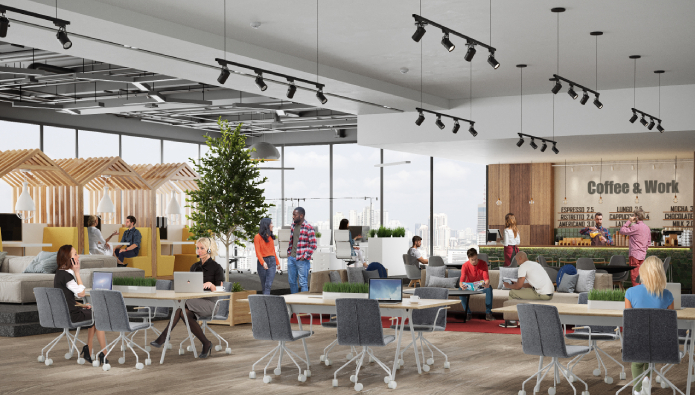
Jeremy Wakeham, chief executive of the Withers Business Division and a commercial real estate partner, said the world over, the buildings we work, live and socialise in are wrestling with the ‘challenge of catering for our new demands’. But he also said this presents extraordinary opportunities.
“This report examines this historic turning point in attitudes and practices to how we use property across all areas of our lives.”
He believes homes are taking on a new level of importance. “Our respondents anticipate that people will expect their homes to deliver much more because they will no longer serve a purely domestic purpose. Getting behind the right targets at the right time will be crucial for investors and developers.”
The Future of real estate report: work, home and social, can be found in full here.
How was the report produced?
Murmur Research was commissioned by Withers – an international law firm with 17 offices worldwide, from Padua and Cambridge to London and San Diego - to investigate the impact of Covid-19 on the future of home, work and socialising.
The firm conducted interviews with 15 experts who are well known figures within property, architecture, land development, hospitality, and academia.
They were as follows:
-
Robert Adam - Robert Adam Architectural Consultancy
-
Yolande Barnes - University College London
-
Lucian Cook - Savills
-
Nectar Efkarpidis - Molonglo
-
Jonathan Harbottle - Land & Partners
-
Philip Harvey - Property Vision
-
Robbie Kerr - ADAM Architecture
-
Katrina Kostic Samen - KKS Savills
-
Marcus Loo -Savills
-
Islam Mahdy - Credence Hospitality Developments
-
David McDowall - BrewDog
-
Chris Miller - White Rabbit Fund
-
Mat Oakley - Savills
-
Richard Pickering - Cushman & Wakefield
-
Mark Williams - Queen Mary School of Business
You can watch an interview with Jeremy Wakeham about the report below.



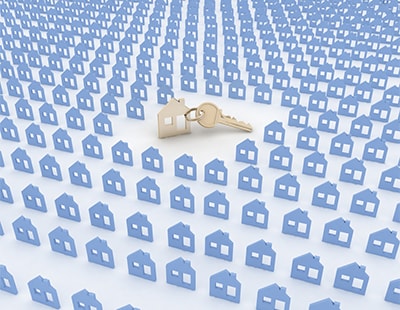









.png)










Join the conversation
Be the first to comment (please use the comment box below)
Please login to comment